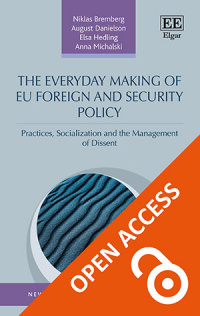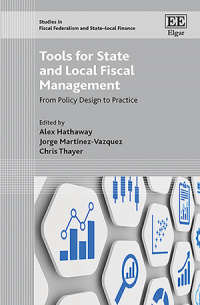Hardback
Imagining Pathways for Global Cooperation
This is an open access title available under the terms of a CC BY-SA 4.0 License. It is free to read, download and share on Elgaronline.com.
这本书探讨了想象力的角色在initiating, contesting and changing the pathways of global cooperation. Building on carefully contextualized empirical cases from diverse policy fields, regions and historical periods, it highlights the agency of a wide range of actors in reflecting on past and present experiences and imagining future ways of collective problem solving.
这本书探讨了想象力的角色在initiating, contesting and changing the pathways of global cooperation. Building on carefully contextualized empirical cases from diverse policy fields, regions and historical periods, it highlights the agency of a wide range of actors in reflecting on past and present experiences and imagining future ways of collective problem solving.
More Information
Contributors
More Information
这本书探讨了想象力的角色在initiating, contesting and changing the pathways of global cooperation. Building on carefully contextualized empirical cases from diverse policy fields, regions and historical periods, it highlights the agency of a wide range of actors in reflecting on past and present experiences and imagining future ways of collective problem solving.
Chapters analyse the mobilizing, identity, cognitive, emotional, and normative effects through which imaginations shape pathways for global cooperation. Expert contributors consider the ways in which actors combine multiple layers of meaning-making through practices of staging the past and present as well as in their circulation. Exploring the contingency and open-endedness of processes of global cooperation, the book challenges more systemic and output-oriented perspectives of global governance. Its synthesis of ways in which imaginations inform processes of creating, contesting, and changing pathways for global cooperation provides a novel conceptual approach to the study of global cooperation.
Interdisciplinary in approach, this authoritative book offers new ways of thinking about global cooperation to scholars and students of international relations, development studies, law and politics, international theory, global sociology and global history as well as practitioners and policy makers across various policy fields.
Chapters analyse the mobilizing, identity, cognitive, emotional, and normative effects through which imaginations shape pathways for global cooperation. Expert contributors consider the ways in which actors combine multiple layers of meaning-making through practices of staging the past and present as well as in their circulation. Exploring the contingency and open-endedness of processes of global cooperation, the book challenges more systemic and output-oriented perspectives of global governance. Its synthesis of ways in which imaginations inform processes of creating, contesting, and changing pathways for global cooperation provides a novel conceptual approach to the study of global cooperation.
Interdisciplinary in approach, this authoritative book offers new ways of thinking about global cooperation to scholars and students of international relations, development studies, law and politics, international theory, global sociology and global history as well as practitioners and policy makers across various policy fields.
Contributors
Contributors include: Amya Agarwal, Silke Beck, Joanildo Burity, Maryam Zarnegar Deloffre, Katja Freistein, Wolfram Kaiser, Stefania Maffeis, Bettina Mahlert, Jeroen Oomen, Christine Overdevest, Sigrid Quack, Christine Unrau, Wouter Werner





